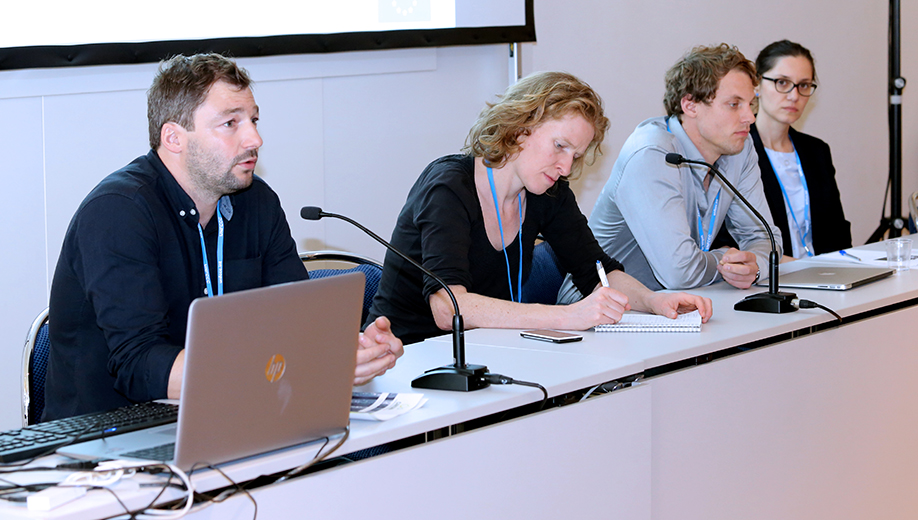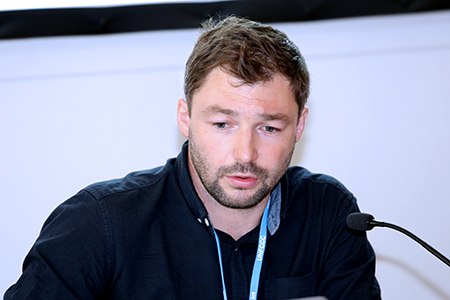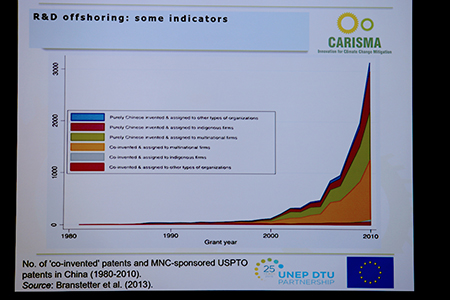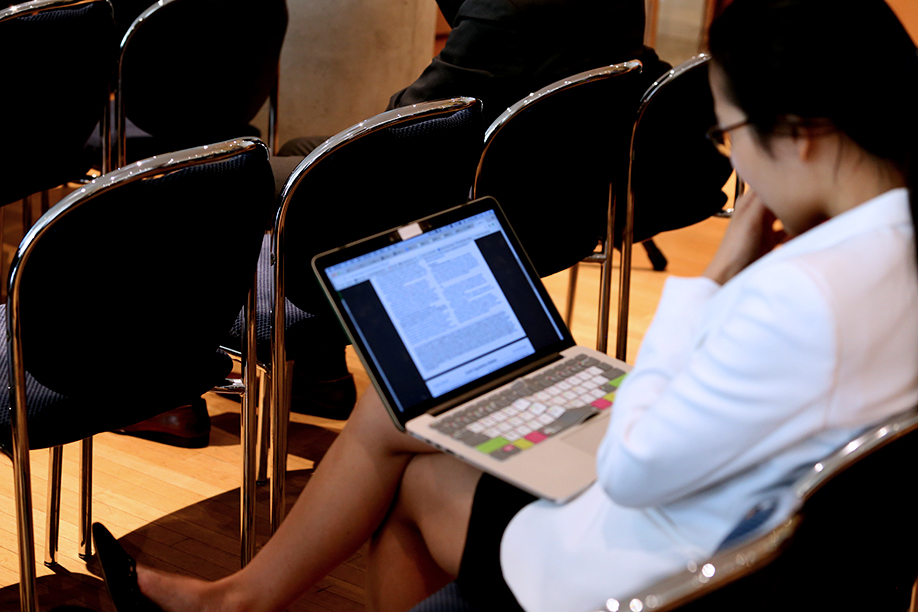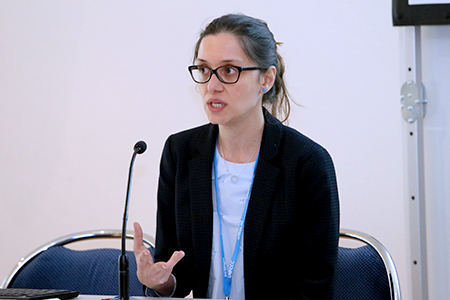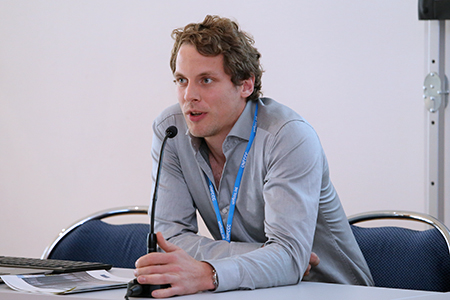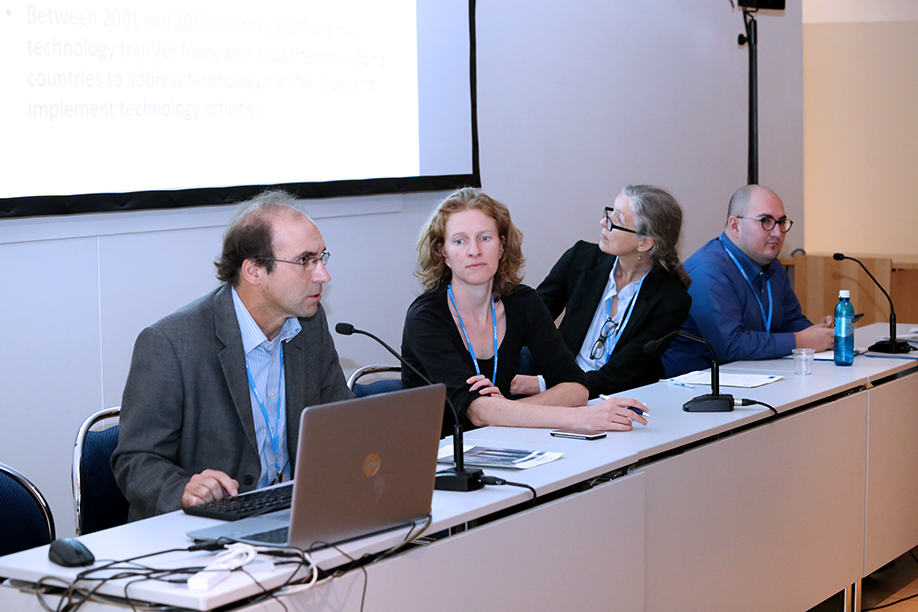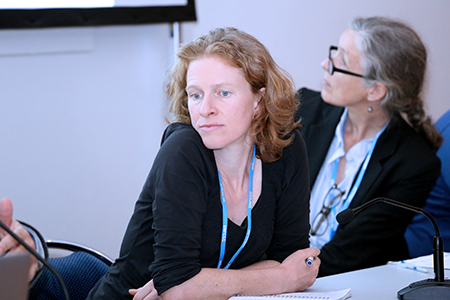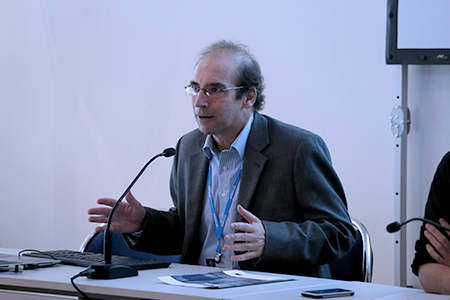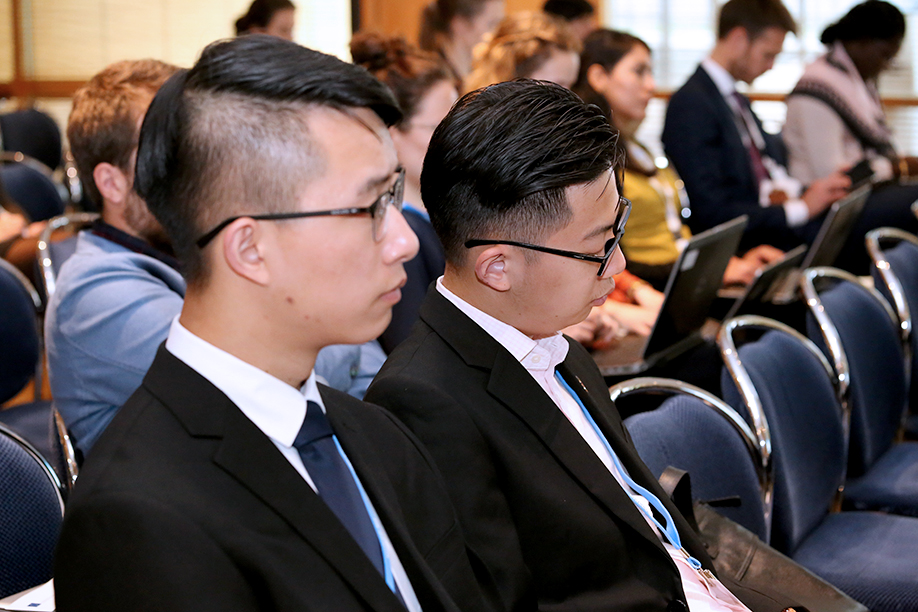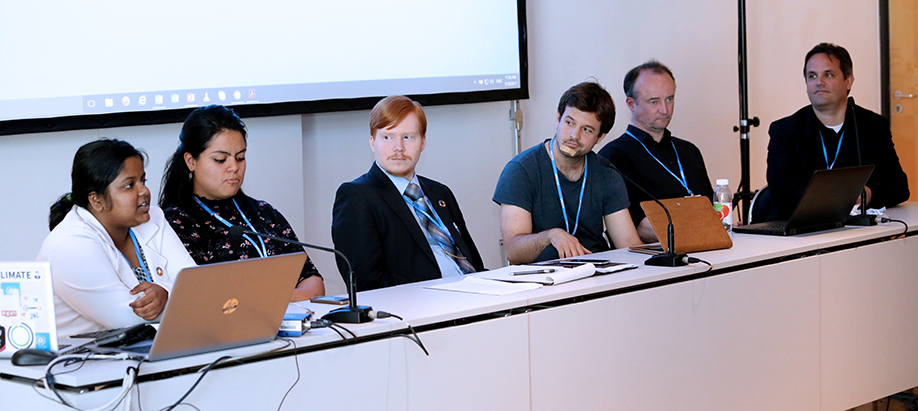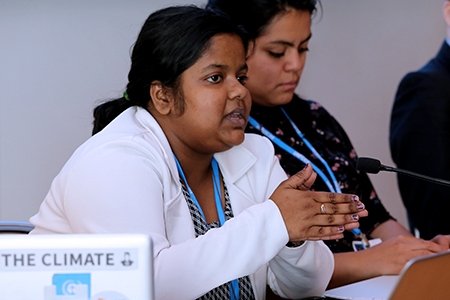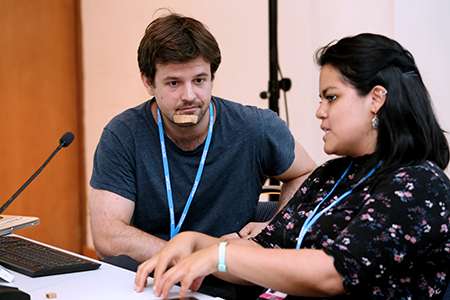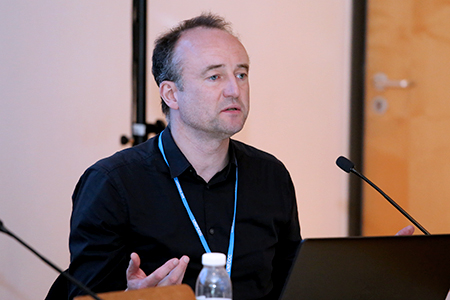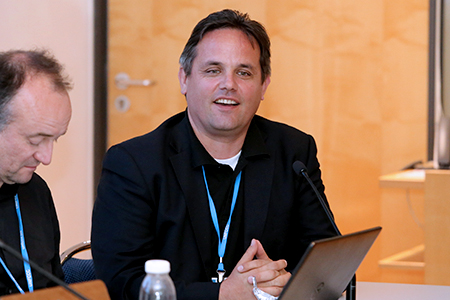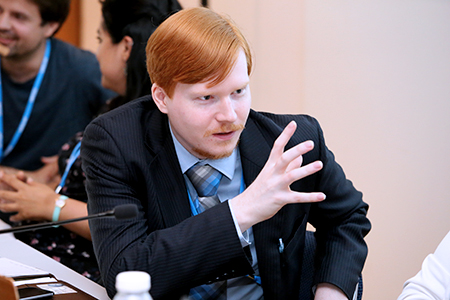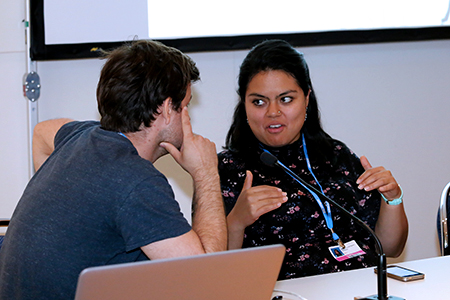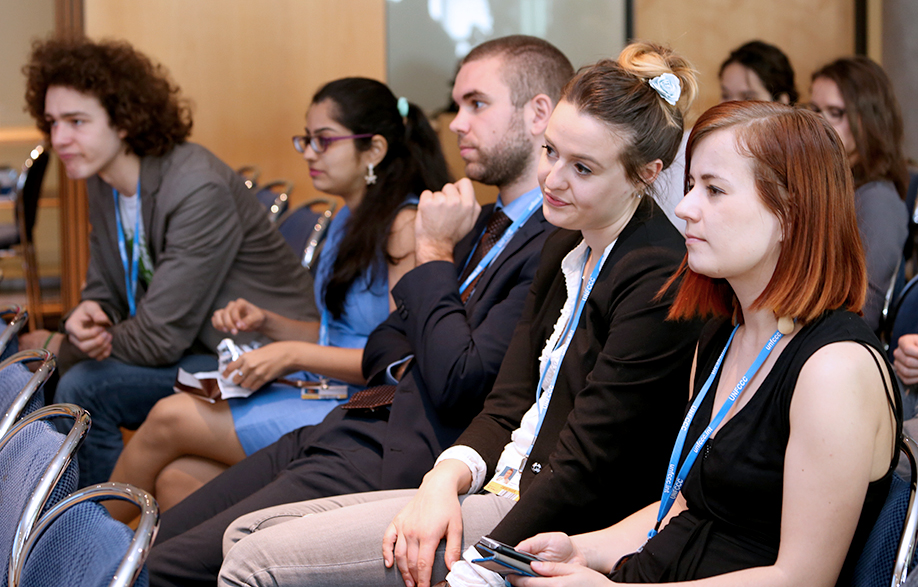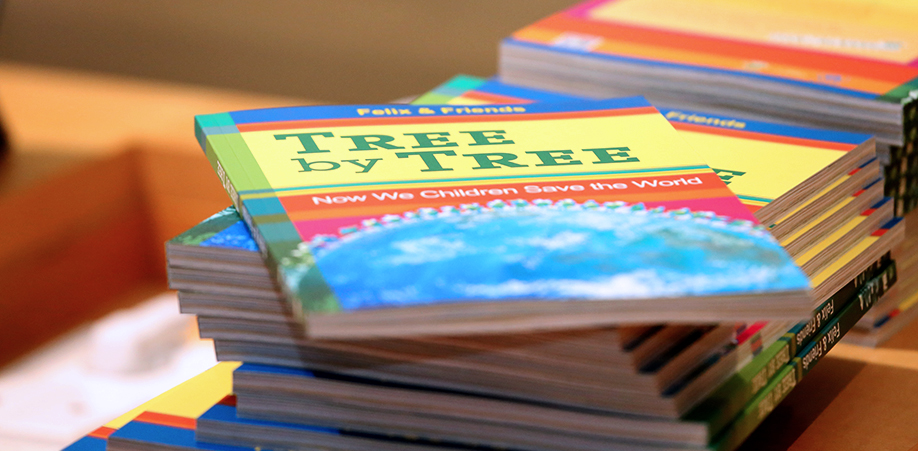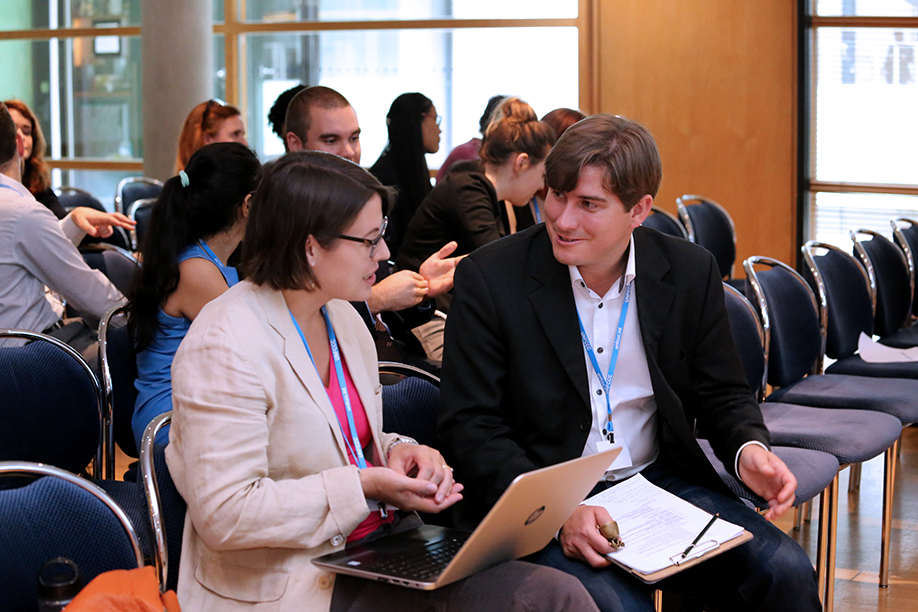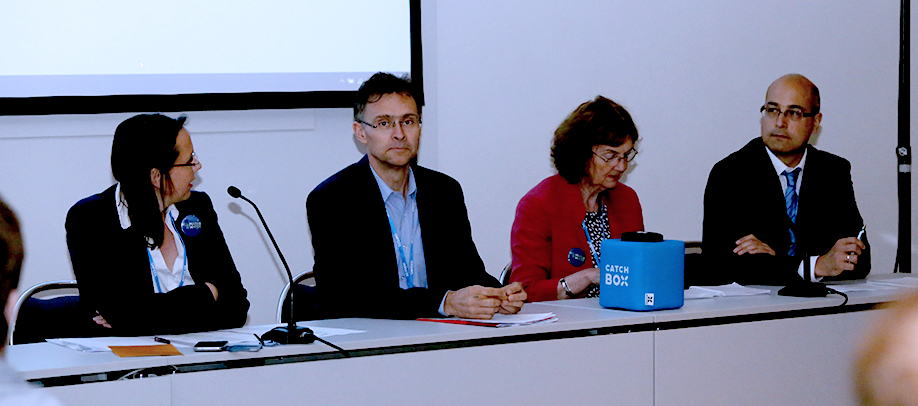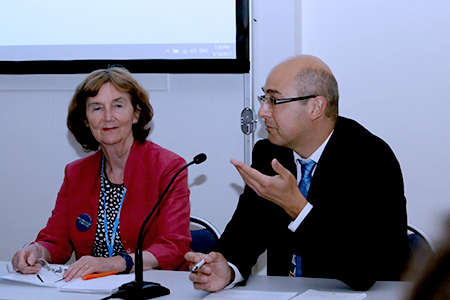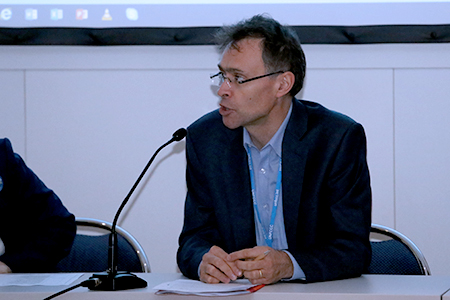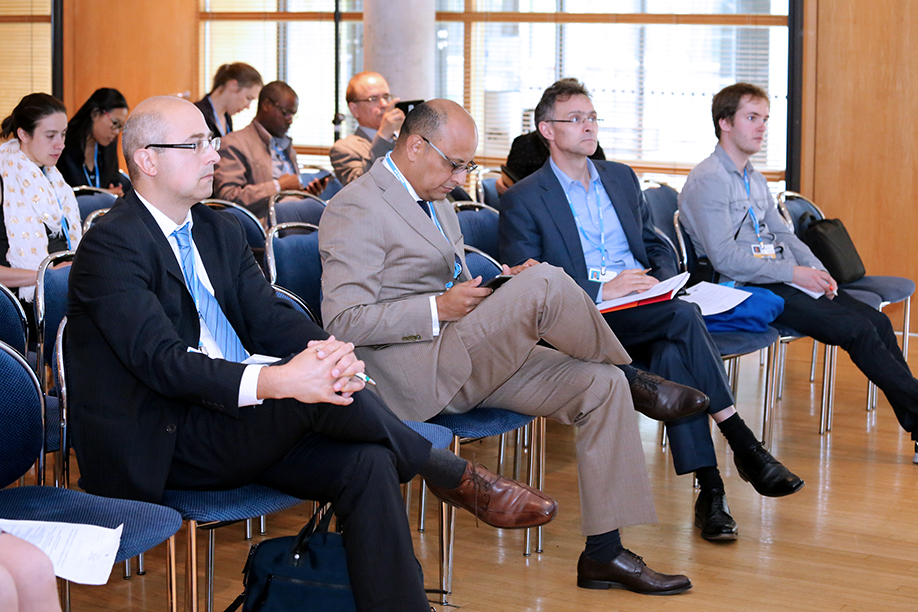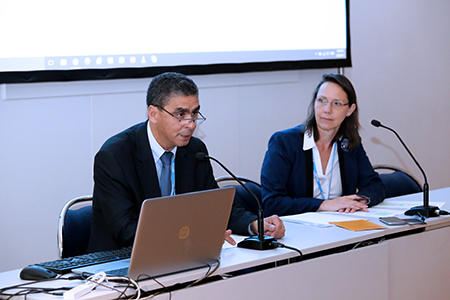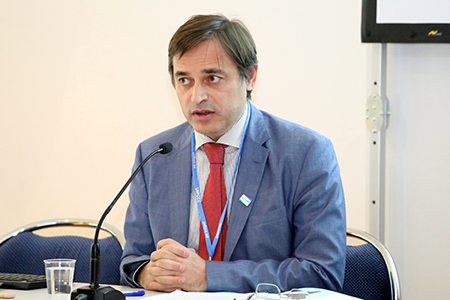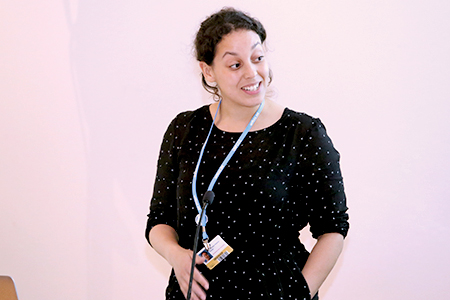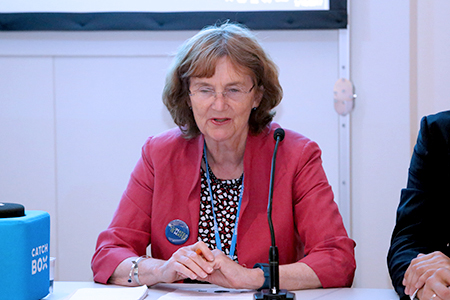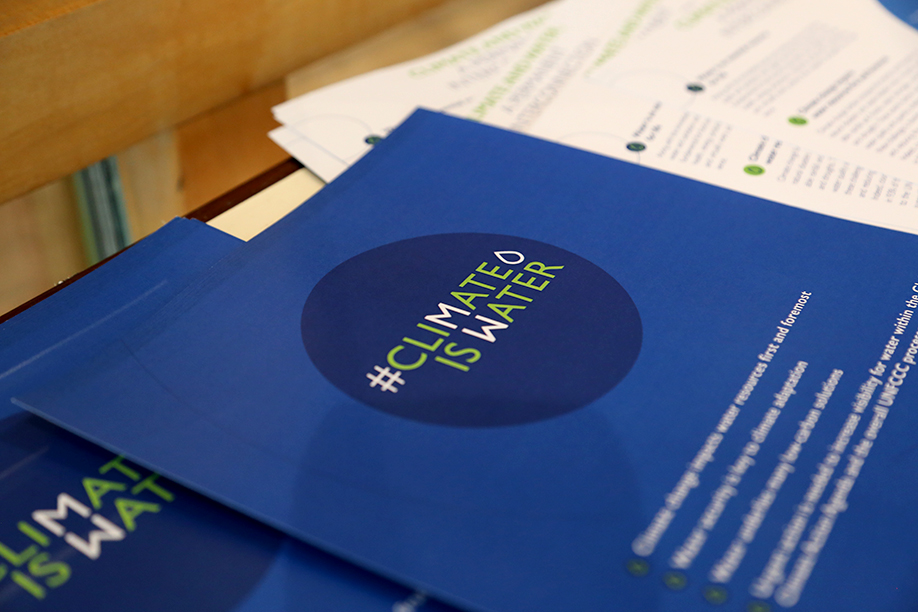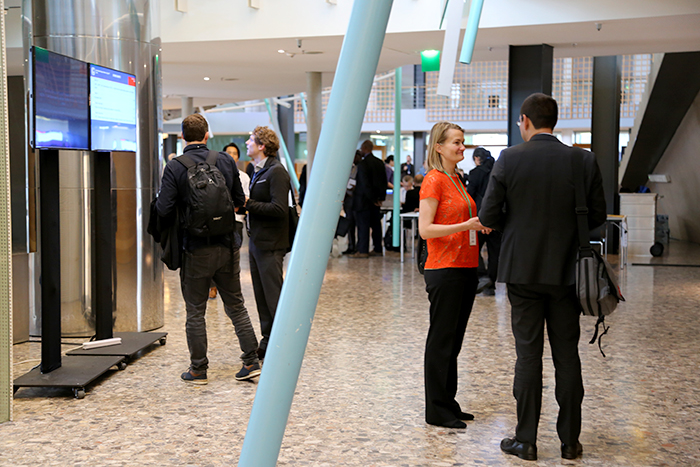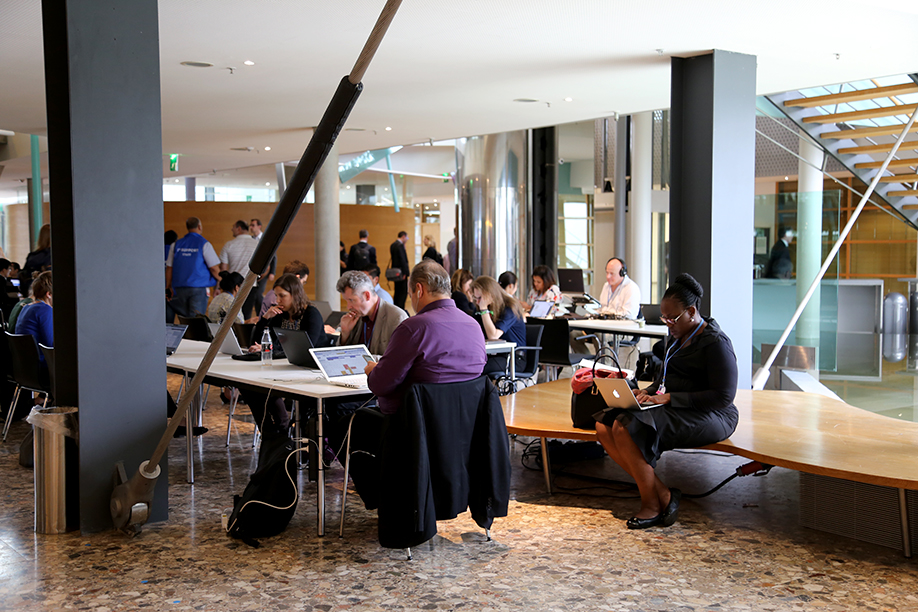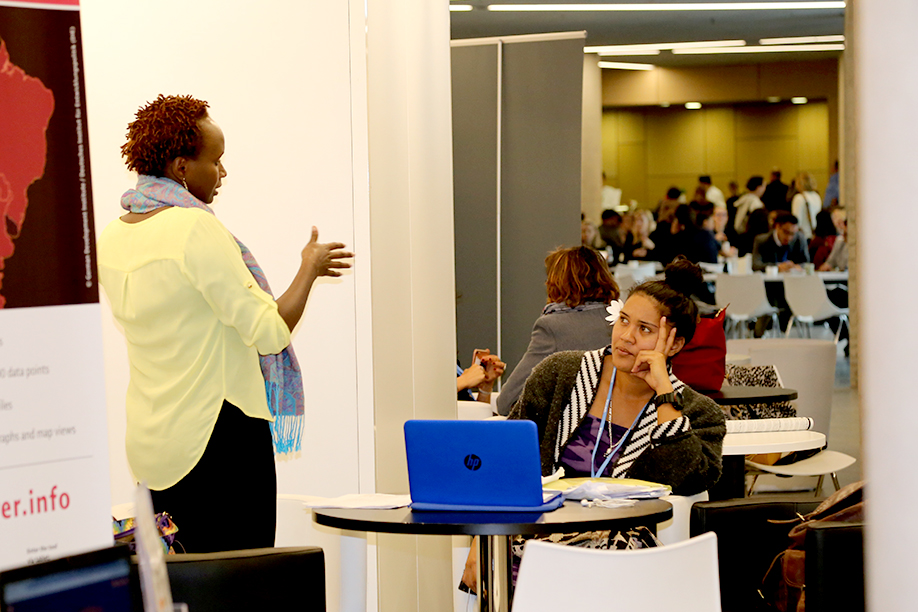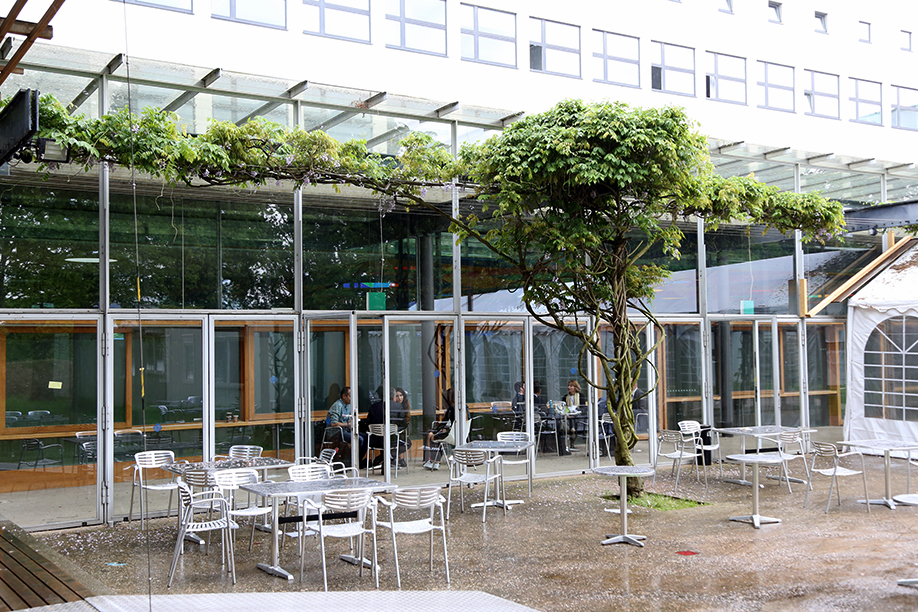Selected Side Events at the Bonn Climate Change Conference - May 2017
8-18 May 2017 | Bonn, Germany
Highlights for Thursday, 18 May 2017
 |
||
|
The following side events were covered by ENBOTS on Thursday, 18 May 2017: |
||
|
IISD Reporting Services, through its Earth Negotiations Bulletin on the Side (ENBOTS) Meeting Coverage, is providing daily web coverage of selected side events at the Bonn Climate Change Conference, May 2017. Photos by IISD/ENB | Angeles Estrada Vigil | ||
Global Research and Development Cooperation in
Climate Technologies: Opportunities and ChallengesPresented by the Joint Implementation Network, the Technical University of Denmark (DTU) and the University of Nijmegen (RU)
This side event explored the implications of global research and development (R&D) cooperation, including with emerging economies, on development and transfer of mitigation technologies. Heleen de Coninck, RU, moderated the event. |
||
|
|
|
|
|
|
|
|
Contact:
-
-
Wytze van der Gaast | wytze@jin.ngo
- Sara Traerup | slmt@dtu.dk
- Heleen de Coninck | h.deconinck@fnwi.ru.nl
More Information:
Climate Justice and Youth – An Inter-Generational DialoguePresented by the Plant-for-the-Planet and the Global Marshall Plan Foundation
This side event discussed issues related to climate justice and youth, including ways to better engage non-party stakeholders in implementation of the Paris Agreement, and youth initiatives around the world, such as the ‘Trillion Tree Campaign’ by Plant-for-the-Planet. Thomas Bruhn, Institute for Advanced Sustainability Studies (IASS), and Yugratna Srivastava, Plant-for-the-Planet, moderated the discussion. The event was conducted in an interactive dialogue format, with the audience being given several opportunities to share views with each other and report back to the meeting. On integrating a broad range of stakeholders in developing the Paris Agreement rulebook, participants highlighted, inter alia, the need to: capture scientific, political and local knowledge; create acceptance, legitimacy and relevance of non-state actor participation; fully integrate empowerment and social learning; and generate sensitivity to “what stakeholders on the ground actually need.” Miroslav Polzer, Secretary General, International Association for the Advancement of Innovative Approaches to Global Challenges (IAAI), called for stakeholders to facilitate social innovation to advance implementation of Article 12 of the Paris Agreement (climate education) and action on climate empowerment. Gaston Meskens, Research and Independent Non-governmental Organizations (RINGOs), shared his views on observer participation in the UN Framework Convention on Climate Change (UNFCCC), emphasizing that “the more pressure there is on parties to deliver, the less willing they are to give access to civil society to the negotiations.” He called for dialogue between delegates and civil society in the form of “compassionate confrontation,” which would be “inspiring and liberating for us all.” On facilitating dialogue among party delegates and civil society, Andreas Sieber, Climate Tracker, explained that his organization trains people online and offline in 22 languages to report on UNFCCC negotiations. Providing examples of writers’ impact on the negotiations, he stressed the importance of focusing on a single issue without losing sight of the “bigger picture.” Following a brief informal exchange of views, participants underscored, inter alia: the importance of maximizing the impact of youth; and the inverse relationship between stakeholder participation and pressure exerted on party delegates, noting the differences between short-term and long-term pressure. Timothy Damon, Global Youth Development Institute (GYDI), highlighted the reference to “intergenerational equity” in the preamble of the Paris Agreement, and stressed the need to have civil society onboard for Article 12 (education and training) implementation. He outlined GYDI’s efforts in: bringing youth from the global South to participate in climate negotiations; and national and regional capacity building. Berenice Danaé Espinoza Hernández, CLIC!, emphasized the need for non-party stakeholders to not only be included in the negotiation process, but also to continue work in their own countries. Highlighting the importance of regional cooperation, she cautioned against creating divisions between the global North and global South within the youth caucus. In the ensuing discussion, participants considered, inter alia: the need for early climate education; the need for scholarships to increase representation of the global South financed through innovative fundraising; the innovative format of the side event and the need for co-productive settings that create a social learning space; and the implications of discussions on conflict of interest on observer participation. |
||
|
|
|
|
|
|
|
|
|
|
Contact:
-
Yugratna Srivastava | yugratna@gmail.com
Frithjof Finkbeiner | frithjof.finkbeiner@globalmarshallplan.org
More Information:
Implementation of Nationally Determined Contributions:
Climate Finance for Water-Related Adaptation and Mitigation ActionPresented by the World Water Council (WWC), the Global Water Partnership (GWP) and the International Water Association (IWA)
In this side event, participants discussed climate change impacts on the water cycle, water security as a priority within Nationally Determined Contributions (NDCs), and unrecognized mitigation opportunities in water systems. Dani Gaillard-Picher, Director, WWC, moderated the event. Highlighting the ‘Climate is Water’ initiative, she said that “water is talked about everywhere” but still not given the “attention it deserves.” Gaillard-Picher stressed that water should be a priority in NDCs. Moulay Driss Hasnaoui, Morocco, underscored the importance of water security in countries “lagging behind” in the water, energy and agriculture sectors. Eva Promes, IWA, highlighted IWA’s Flood and Drought Portal, a technical tool which supports decision making at the regional and water basin levels. Underscoring the multiple co-benefits of water investments, Alexander Linke, Deutsche Gesellschaft für Internationale Zusammenarbeit (GIZ), said that improving regulatory environments and knowledge management of water utilities will be key to implementing concrete projects. Gareth Phillips, African Development Bank (AfDB), reminded participants that the long-term challenge in climate policy is to reach net zero emissions, and stressed the need to “systematically drive down” emission intensity across sectors. Noting that there is currently no financial reward for the private sector to invest in adaptation, he highlighted a proposed adaptation benefit mechanism as a potential solution. Merylyn Hedger, Overseas Development Institute (ODI), underscored the centrality of water to the climate agenda. She called for a “scaling up” of adaptation and mitigation efforts using a “programmatic” rather than a project-based approach. Noting that water insecurity is estimated to cost the world economy 45% of global GDP by 2050, Nicolas Delaunay, GWP, underscored that water security is key for adaptation planning and building the climate resilience of communities and ecosystems. He highlighted GWP’s Global Water, Climate and Development programme, which supports implementation of climate change commitments in 16 developing countries. During the ensuing discussion, participants addressed, inter alia: limitations to mitigation opportunities in Africa; sectoral policy approaches to address water challenges in climate policy; methodologies for calculating emission intensity for different services in the economy; and technologies that both generate electricity and are “water-wise.” In closing, Jean-Luc Redaud, French Water Partnership, echoed the importance of water as a priority action in NDCs and called for a continued strengthening of water governance. |
||
|
|
|
|
|
|
Contact:
-
Danielle Gaillard-Picher | d.gaillard@worldwatercouncil.org
Susanne Skyllerstedt | Susanne.skyllerstedt@gmail.com
Eva Promes | eva.promes@iwahq.org
More Information:
|
|
|
|
|
The Earth Negotiations Bulletin on the Side (ENBOTS) © enb@iisd.org is a special publication of the International Institute for Sustainable Development (IISD). This issue has been written by Suzi Malan, Ph.D., Katherine Browne, Elena Kosolapova, Ph.D., and Cleo Verkuijl. The Digital Editor is Ángeles Estrada. The Editor is Leila Mead leila@iisd.org. The Director of IISD Reporting Services is Langston James “Kimo” Goree VI kimo@iisd.org. The Earth Negotiations Bulletin on the Side is published by the International Institute for Sustainable Development. The Sustaining Donors of the Earth Negotiations Bulletin are the European Union (EU) and the Kingdom of Saudi Arabia. General Support for the Earth Negotiations Bulletin during 2017 is provided by the German Federal Ministry for the Environment, Nature Conservation, Building and Nuclear Safety (BMUB), Italian Ministry for the Environment, Land and Sea, Japanese Ministry of Environment (through the Institute for Global Environmental Strategies - IGES), New Zealand Ministry of Foreign Affairs and Trade, Swedish Ministry of Foreign Affairs, Government of Switzerland (Swiss Federal Office for the Environment (FOEN), and SWAN International. Funding for translation of the Earth Negotiations Bulletin into French has been provided by the Government of France, Québec, and the International Organization of La Francophonie/Institute for Sustainable Development of La Francophonie (IOF/IFDD). The opinions expressed in the Bulletin are those of the authors and do not necessarily reflect the views of IISD or other donors. Excerpts from the Bulletin may be used in non-commercial publications with appropriate academic citation. For information on the Bulletin, including requests to provide reporting services, contact the Director of IISD Reporting Services at kimo@iisd.org, +1-646-536-7556 or 300 East 56th St., 11D, New York, NY 10022 USA. The ENBOTS team at the Bonn Climate Change Conference - May 2017, can be contacted by e-mail at suzi@iisd.org. |
||


